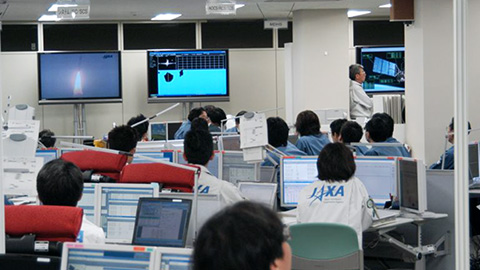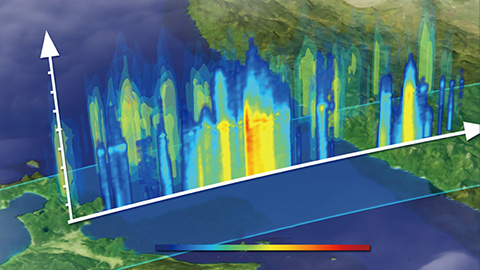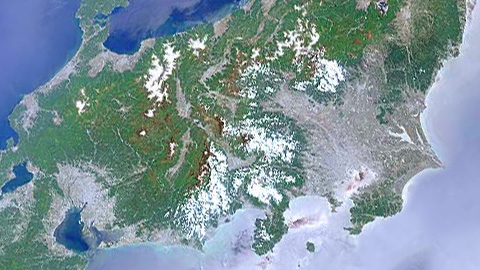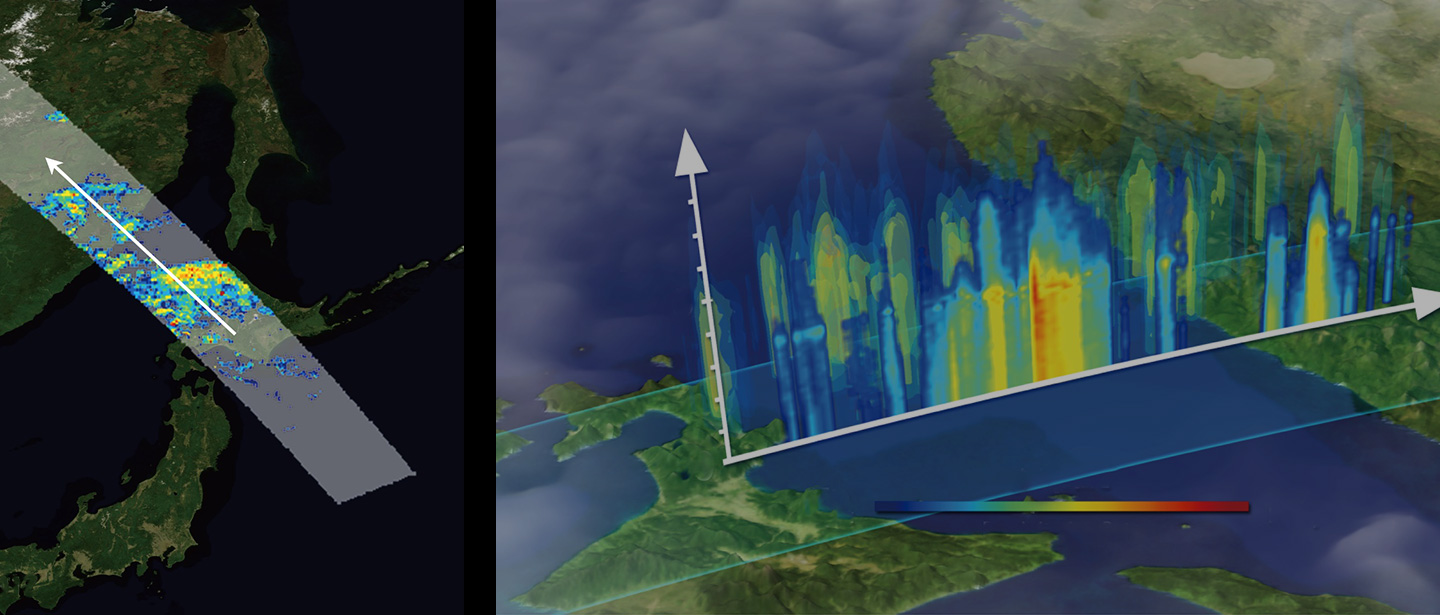As is evident from the Assessment Report (AR) of Intergovernmental Panel on Climate Change (IPCC) and the Paris Agreement adopted by the United Nations Framework Convention on Climate Change (UNFCCC), each country is addressing climate change including global warming as the global policy agenda.
JAXA has developed and operated Earth observation satellites, and above all, elucidating the mechanism of climate change is one of the major roles of these satellites. In order to understand the status of climate change, it is necessary to observe various environmental factors of whole area on a global scale periodically and to detect changes through long-term monitoring. In this context, Earth observation satellites can respond to such observation demands flexibly and effectively. Furthermore, it is expected that the accuracy of climate change monitoring will be improved by combining Earth observation satellites with conventional ground observations and aircraft observations.
In 2004, Essential Climate Variables (ECVs) were specified in the Global Climate Observing System (GCOS) established by collaboration of international organizations for the purpose of identifying and predicting specific and accurate changes in the global environment caused by climate change. ECVs are physical, chemical and biological variables which characterize Earth’s climate. At the moment, observations of 54 variables are required, as shown in Figure 1. The Climate Data Record (CDR) obtained from ECV observations provides the empirical evidence needed 1) to understand and predict climate change, 2)
to guide mitigation and adaptation measures to the effects of climate change, 3) to assess risks and identify potential causes of extreme weather events.
JAXA operates satellites including GCOM-C “SHIKISAI” and GCOM-W “SHIZUKU” in the Global Change Observation Mission (GCOM) project for the purpose of the global, long-term observation of Earth’s environmental changes in atmosphere, ocean, land, snow and ice. These observation data are expected to contribute to ECV. As shown in Figure 2, GCOM-C observation contributes to 18 ECVs in atmosphere, land, and ocean. As a total, JAXA’s Earth observation satellites contribute to 26 ECVs.
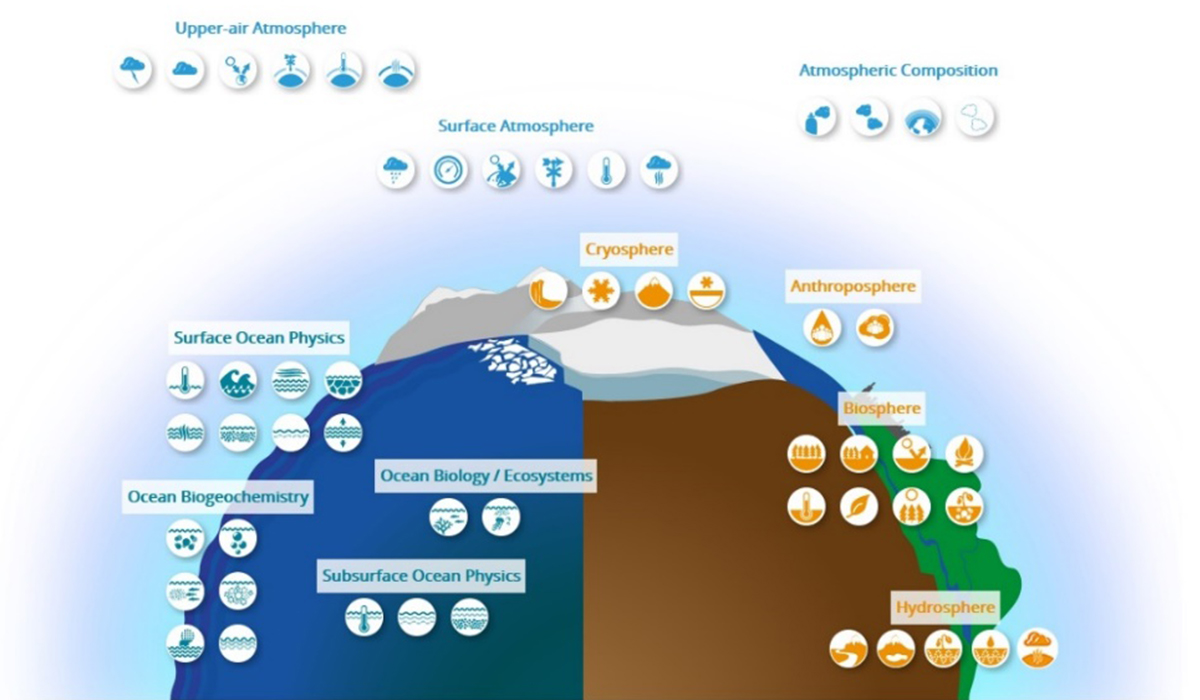
Figure 1: Essential Climate Variables (ECV) specified by GCOS
https://gcos.wmo.int/en/essential-climate-variables/
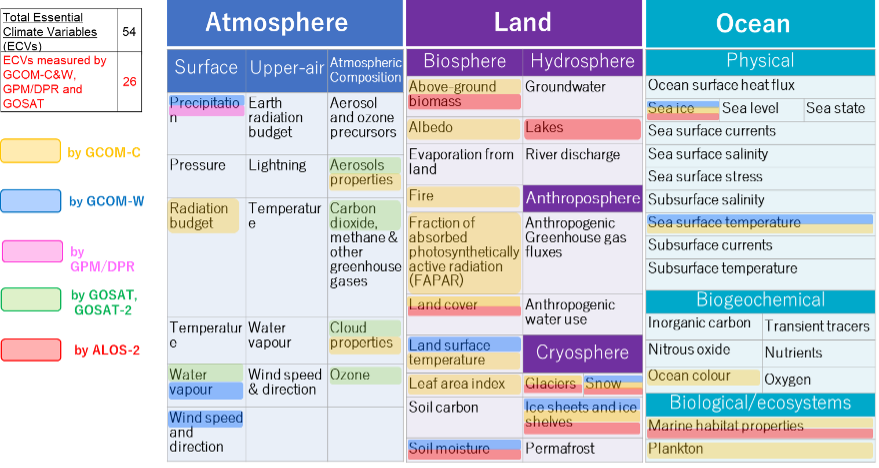
Figure 2: Contribution of JAXA’s Earth Observation Satellites to GCOS ECVs






